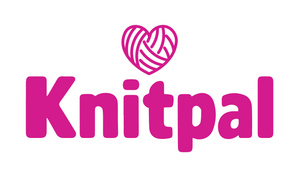
How to Choose the Perfect Heel for Your Hand-Knitted Socks
Store-bought socks just can’t replace hand-knitted socks when it comes to personalized fit. This is especially apparent when it comes to the variety of heels that you can knit to ensure that it fits the wearer’s foot perfectly.
The heel is one of the most important parts of a knitted sock. It’s where fit, comfort, and durability all come together. Choosing the right heel style can mean the difference between socks that slip down, wear out quickly, or fit just right. In this guide, we’ll explore the most popular types of sock heels, their pros and cons, and how to choose the right one for your next project.
Types of popular heels for knitted socks:
- Traditional heel flap/heel flap and gusset
- German short-row heel
- Afterthought heel
- Fish lips kiss heel
- Peasant/forethought heel
Other types of heels for knitted socks:
- Square heel/Dutch heel
- Round/French heel
- Swiss heel
- Fleegle’s heel (a combination of the German short-row and traditional heel flap heels)
Did you know?
The “common heel”, which has a seam that is sewn together, is now seldom used outside Victorian or modernized Victorian sock patterns.
How to choose the best knitted heel for your socks:
| Type of Heel | When the Heel is Used |
| Traditional heel flap |
Mostly used for toe-up socks. |
| German short-row heel |
Use for toe-up or cuff-down socks. |
| Afterthought heel |
|
| Fish lips kiss heel |
|
| Peasant/forethought heel | Knitted in much the same way as the afterthought heel, however, scrap or waste yarn is used to delineate where the heel will be. |
| Square/Dutch heel |
|
| Round/French heel |
|
| Fleegle’s heel |
|
Tutorials for the different knitted heels
Traditional heel flap/heel flap and gusset
This is probably the first heel that most knitters learn when they learn to knit socks. It can also be made very durable by using slip stitch patterning on the flap (the part that goes over the heel). It can also be personalized very easily.
Here is a photo tutorial for a toe-up sock using the heel flap and gusset heel and here is a tutorial for a cuff-down sock using the heel flap and gusset heel.
Video tutorials:
https://www.youtube.com/watch?v=0BXTngTHjBA
German short-row heel
Ida from Knitgrammer notes that knitting a German short-row heel for toe-up socks is quite simple once you’ve done the math. To make things easier, she’s done the maths for you and has also supplied a pattern to make this hourglass-shaped heel.
Video turorials
German short row heels, three ways by Roxanne Richardson https://www.youtube.com/watch?v=zywKS3jj0rg
Wrap and turn short row heel without holes by Knitting with Suzanne Bryan https://www.youtube.com/watch?v=ZahZE4GREr0
Afterthought heel
Ida from Knitgrammer explains the placement of the afterthought as follows:
“All you need to know is the number of stitches you have per sock and your row gauge. Based on those numbers this pattern calculates also the placement for your heel”.
She also has a thorough tutorial and pattern for the afterthought heel on her website.
Video tutorial:
How to knit an afterthought heel by The Chilly Dog
https://www.youtube.com/watch?v=QI8nCu9wF88
Fish lips kiss heel
The fish lips kiss heel is an easy heel pattern to learn as it doesn’t have a gusset and no stitches need to be picked up in working it.
Here is the paid pattern for the fish lips kiss heel (Ravelry).
Video tutorial: https://youtu.be/qB_QqZBXf8o?si=ejqHqLtAjBfnTXx-
<iframe width="560" height="315" src="https://www.youtube.com/embed/qB_QqZBXf8o?si=WnSCZvdbXD822Eum" title="YouTube video player" frameborder="0" allow="accelerometer; autoplay; clipboard-write; encrypted-media; gyroscope; picture-in-picture; web-share" referrerpolicy="strict-origin-when-cross-origin" allowfullscreen></iframe>
Peasant/forethought heel
The peasant heel that is worked with waste yarn is a beautiful option if you want to knit the heel of the sock last and not bother with it while you’re busy knitting the rest of the sock. Use this heel for socks you know will get a lot of wear, as the heel can be removed and a new one re-knitted if the wool should wear out. No need for darning!
This heel, like the afterthought heel, is used a lot in traditional patterns from the Middle East, Balkans, and Eastern Europe.
 Tip: For waste yarn, use a different colored yarn that is easy to spot. This will make removing it later on much easier!
Tip: For waste yarn, use a different colored yarn that is easy to spot. This will make removing it later on much easier!
Video tutorial: https://www.youtube.com/watch?v=DDinydbm0MQ
Square/Dutch heel
The square/Dutch heel is a deeper heel than the fish lips kiss heel and is a comfortable fit. Used for cuff-down socks, it can work on any stitch count and any gauge.
Here is a pattern using the square/Dutch heel.
Video tutorial: https://www.youtube.com/watch?v=IKqyK20UISg
Round/French heel
The round, or French, heel is used for cuff-down socks, like in this simple sock pattern that uses the French heel. Like the square/Dutch heel, the French one will also work on any stitch count or gauge.
Video tutorial: https://www.youtube.com/watch?v=uJzLVCZSqdg
Fleegle’s heel
The Fleegle’s heel is a combination of the German short-row heel and the
Here’s the link to the pattern for working a “Fleegle’s heel”.
http://fleeglesblog.blogspot.com/2006/11/leegles-toe-up-no-flap-no-hassle-sock.html
Tips for Choosing the Right Heel for Your Project
-
Match to foot shape: High insteps often do best with gusset heels.
-
Think about yarn: Striped yarns look great with short-row or afterthought heels.
-
Plan for use: House socks can be softer; everyday socks need strength.
-
Don’t fear experimentation: Try different heel styles until you find your favorite.
Finally, if you’re unsure about how to pick up stitches in your knitting, here’s a lovely photo tutorial from Modern Daily Knitting.
What’s your favorite heel to knit? Tell us in the comments or in the KnitPal Facebook Group!
